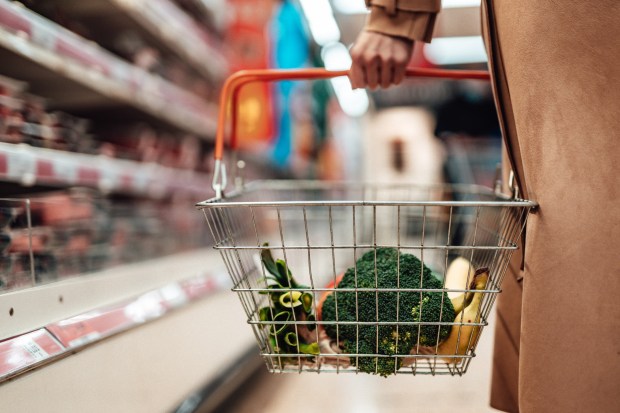Business
Quorn Revamps Frozen Range, Drops Artificial Ingredients

A significant change has taken place in the frozen food aisle as Quorn, a leading name in vegetarian products, has launched a major overhaul of its range. The brand has removed all artificial ingredients from its frozen offerings, a move that has sparked excitement among consumers.
Starting immediately, Quorn’s entire frozen selection will be free from artificial components, including the elimination of Sodium Alginate, a preservative derived from algae. While generally safe, this ingredient may cause stomach issues for a small percentage of people. A representative for Quorn announced the change through social media, stating, “So here’s the thing…they’re still the succulent, juicy balls you love, but now contain no artificial ingredients.”
The new formulation promises to maintain the same high protein content and fiber while ensuring a quicker cooking time of just 18 minutes, making them a convenient option for busy households. The brand also revealed a fresh packaging design to accompany the updated recipes.
Consumer response has been overwhelmingly positive, with many taking to social media to express their enthusiasm. One user commented, “Oh, I’ve just had some with my pasta. They are proper yummy.” Another added simply, “Delicious.” Despite the excitement, some consumers noted that not all products are vegan, prompting Quorn to indicate plans for a vegan version in the future.
In tandem with Quorn’s announcement, Greggs, a popular UK bakery chain, also made headlines by reintroducing the Vegan Steak Bake, now renamed the Vegan Lattice. This pastry, filled with Quorn pieces and onion in a vegan gravy, is wrapped in flaky pastry and has been a hit since its initial release in 2019. Greggs assures fans that while the name has changed, the taste remains “super tasty.”
The shift in both Quorn’s product line and Greggs’ offerings reflects a growing trend among consumers toward healthier, less processed food options. As awareness of ultra-processed foods (UPFs) increases, many shoppers are seeking meals that contain fewer artificial additives. Research has shown links between UPFs and various health issues, prompting consumers to be more cautious about their dietary choices.
The NOVA classification system, developed by Brazilian researchers, categorizes foods based on their processing levels. Group 1 consists of unprocessed or minimally processed foods, while Group 4 includes ultra-processed items such as sugary snacks and instant meals. Quorn’s decision to eliminate artificial ingredients aligns with a broader shift in the food industry towards transparency and health-conscious formulations.
With Quorn’s revamped offerings and Greggs’ continued innovation, consumers can expect more delicious, guilt-free options in their diets. As these brands evolve, they are not only responding to market demand but also setting new standards for vegetarian and vegan cuisine.
-

 Entertainment2 months ago
Entertainment2 months agoIconic 90s TV Show House Hits Market for £1.1 Million
-

 Lifestyle4 months ago
Lifestyle4 months agoMilk Bank Urges Mothers to Donate for Premature Babies’ Health
-

 Sports3 months ago
Sports3 months agoAlessia Russo Signs Long-Term Deal with Arsenal Ahead of WSL Season
-

 Lifestyle4 months ago
Lifestyle4 months agoShoppers Flock to Discounted Neck Pillow on Amazon for Travel Comfort
-

 Politics4 months ago
Politics4 months agoMuseums Body Critiques EHRC Proposals on Gender Facilities
-

 Business4 months ago
Business4 months agoTrump Visits Europe: Business, Politics, or Leisure?
-

 Lifestyle4 months ago
Lifestyle4 months agoJapanese Teen Sorato Shimizu Breaks U18 100m Record in 10 Seconds
-

 Politics4 months ago
Politics4 months agoCouple Shares Inspiring Love Story Defying Height Stereotypes
-

 World4 months ago
World4 months agoAnglian Water Raises Concerns Over Proposed AI Data Centre
-

 Sports4 months ago
Sports4 months agoBournemouth Dominates Everton with 3-0 Victory in Premier League Summer Series
-

 World4 months ago
World4 months agoWreckage of Missing Russian Passenger Plane Discovered in Flames
-

 Lifestyle4 months ago
Lifestyle4 months agoShoppers Rave About Roman’s £42 Midi Dress, Calling It ‘Elegant’









